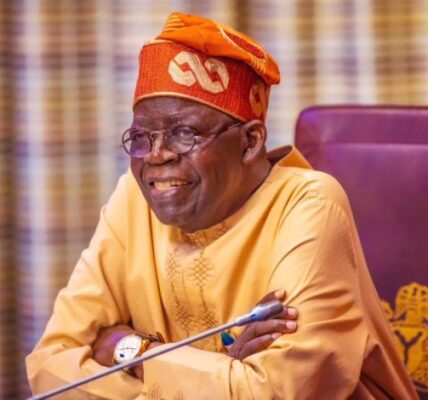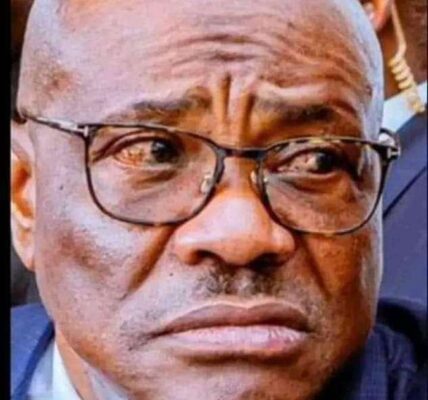Tinubu Declares State of Emergency On Security Training Institutions
President Bola Tinubu has declared a state of emergency over Nigeria’s security training facilities.
According to him, the move was due to their outdated conditions which he cited as a threat to the effectiveness of Nigeria’s internal security agencies.
The announcement specifically addresses the training institutions of the Nigeria Police Force (NPF), the Nigeria Security and Civil Defence Corps (NSCDC), and other security agencies.
It was confirmed by Enugu Governor Peter Mbah, who heads the National Economic Council (NEC) ad-hoc committee.
The committee is tasked with revamping security training institutions and the governor disclosed the development during an on-site inspection of the facilities in Lagos.
When he was addressing journalists after the inspection, Mbah said, “What we’ve observed today is consistent with what President Tinubu recognized when he visited the council chamber on October 23 and personally approved the inauguration of this ad hoc committee tasked with overhauling all training institutions of the Nigeria Police Force and the Nigerian Security and Civil Defence Corps.
“The President recognized the urgent need for bold action to restore the pride, professionalism, and confidence of our men and women in the security sector. That is precisely what we are here to validate. This committee has a mandate to report back within 30 days.
“As you know, we divided ourselves into two teams. One team, led by His Excellency Abdullahi Sule, Governor of Nassarawa State, is visiting all the training institutions in the North, while we are currently visiting the institutions in the South. We also have consultants with us, who will conduct a deep assessment of what needs to be rebuilt, re-equipped, and sustained in these training institutions.
“The President indeed sees this as an emergency. What we aim to achieve is the creation of an intervention fund for the rebuilding, renovation, and re-equipping of these institutions. As you know, the President has approved the recruitment of 30,000 police officers, which cannot be effectively implemented without adequate training facilities. This is why we are treating it with the seriousness it deserves.
“This particular facility, for example, was built around 1948. As we consider redevelopment, are we also looking at digital transformation for police training? Absolutely. We cannot rely on 20th-century systems to train a 21st-century police force. Our personnel need to acquire evolving digital skills in areas such as artificial intelligence, robotics, mechatronics, and other technologies essential for modern policing.
“Our approach is a comprehensive revamp. As the President has emphasized, you cannot expect men and women responsible for protecting our communities and upholding law and order to be trained in inhumane conditions. That is simply unacceptable, and this initiative is aimed at addressing that.
“Lastly, for emphasis, I want to clarify that this action is not reactionary. Some viewers may think this is a response to the recent comments by former President Trump, but that is not the case. This directive was issued on October 20, before any external events. This is a forward-thinking, proactive initiative by a President who recognizes that our training institutions have suffered decades of neglect.
“Our goal is to rebuild these institutions, equip them with modern facilities, and provide world-class environments for our police officers and civil defence personnel. What you are witnessing is a nationwide effort to ensure that all training institutions are brought up to modern standards and aligned with 21st-century realities.
In their remarks, Governor Prince Dapo Abiodun, alongside the committee’s secretary, former Inspector General of Police Alkali Usman Baba, and Assistant Inspector General of Police Olatunji Disu, who oversees the Special Protection Unit (SPU), stated that the committee has 30 days to submit a comprehensive report to the NEC.
According to them, the report will serve as a guide for the next phase of reforms.






